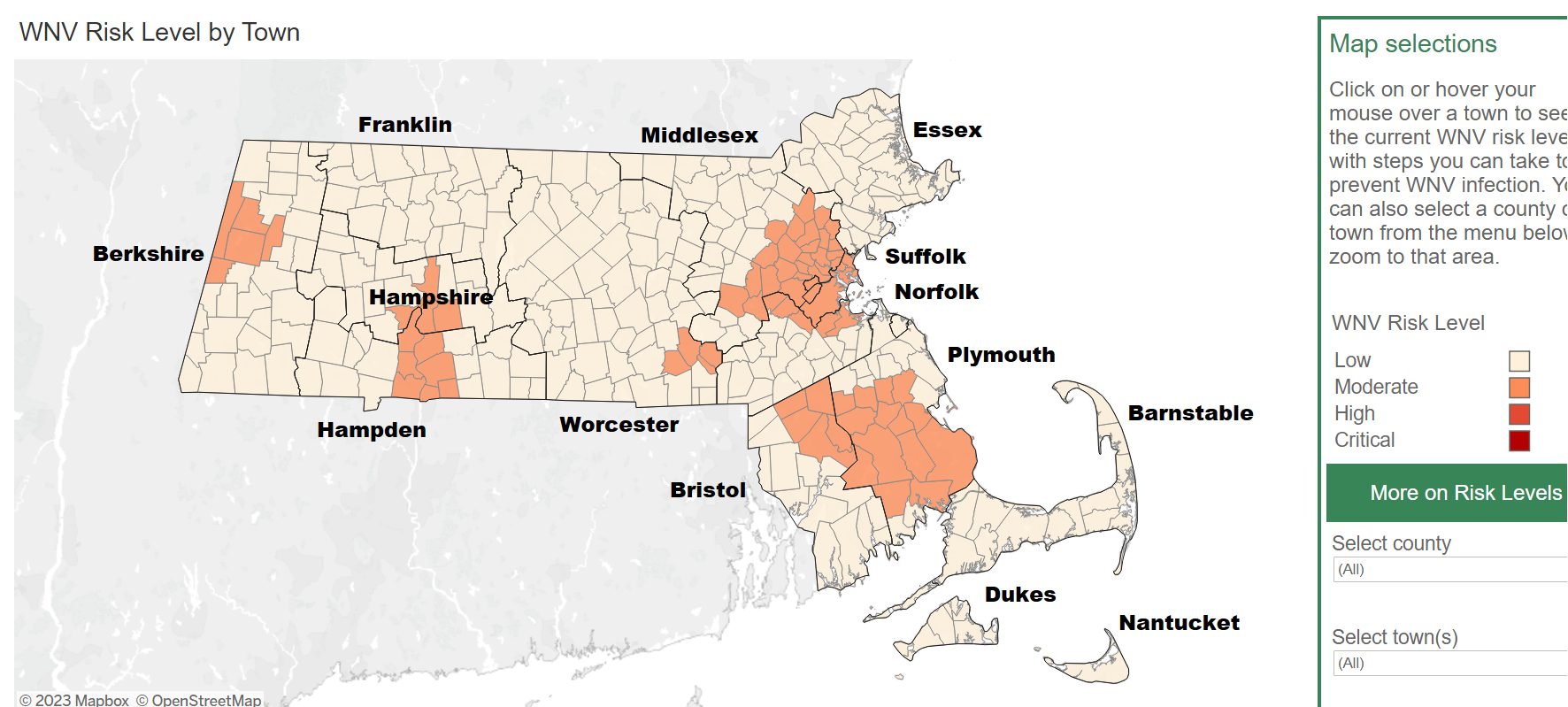Newsletter Signup
Stay up to date on all the latest news from Boston.com
Health
The first two human cases of West Nile Virus in Massachusetts this year have been identified in Middlesex County, the state Department of Public Health announced Tuesday.
The first case is a woman in her 70s who was exposed to the mosquito-borne illness in a different part of the country, the department said in a press release. The second case is a man in his 40s who was exposed in Middlesex County.
Right now, all of Suffolk County, the southeastern half of Middlesex County, and most of Plymouth County is at moderate risk for West Nile Virus infections, according to the department’s risk map. Parts of Norfolk, Bristol, Worcester, Hampden, Hampshire, and Berkshire Counties are also at moderate risk.
Officials regularly test mosquitos in every municipality to determine the current risk level there.

“Populations of mosquitoes that can carry and spread this virus are fairly large this year, and we have seen recent increases in the number of WNV-positive mosquito samples from multiple parts of the Commonwealth,” Public Health Commissioner Robert Goldstein said in the release.
In Massachusetts, humans are most at risk of being exposed to West Nile Virus in August and September, but some level of risk will continue for several more months, officials said.
Officials began warning of an elevated risk of West Nile Virus exposure in Worcester and Boston in July. Last year, the state health department identified eight human cases of the virus.
Between 2011 and 2020, 148 people were reported as having been infected with West Nile Virus in Massachusetts, according to the state health department. Seven of those people, or 4.7%, died of the disease.
While West Nile Virus can infect people of all ages, people over 50 are more likely to become seriously ill, the health department said.
About 1 in 150 people infected with the virus will become seriously ill, according to the CDC, and around 10% of those people will die.
Only around 20% of people infected with the virus will show any symptoms, the CDC said. When present, West Nile Virus symptoms are flu-like.
The virus is spread through mosquito bites, so the best way to prevent infection is to avoid being bitten by mosquitos.
DPH tips for avoiding mosquito bites:
For more information on West Nile virus in Massachusetts, visit the state’s website.
Stay up to date on all the latest news from Boston.com